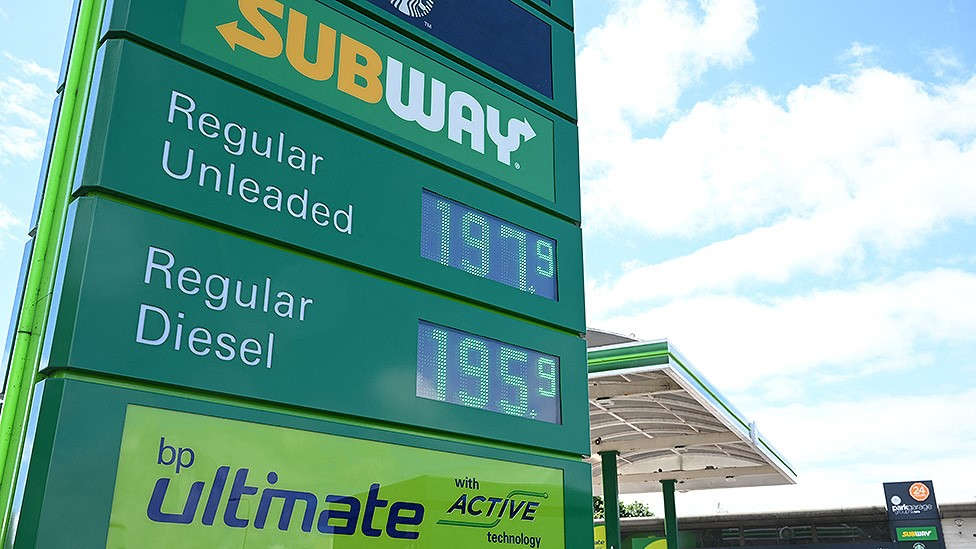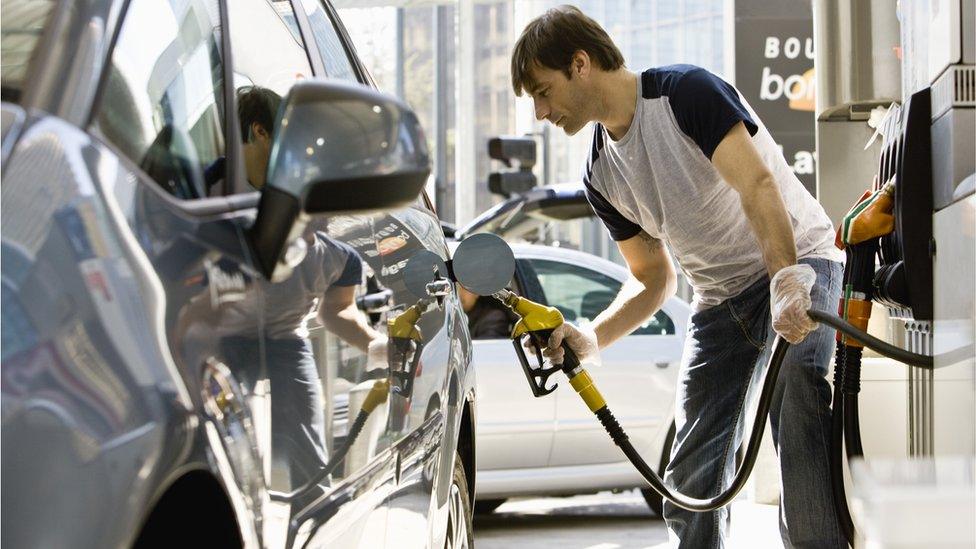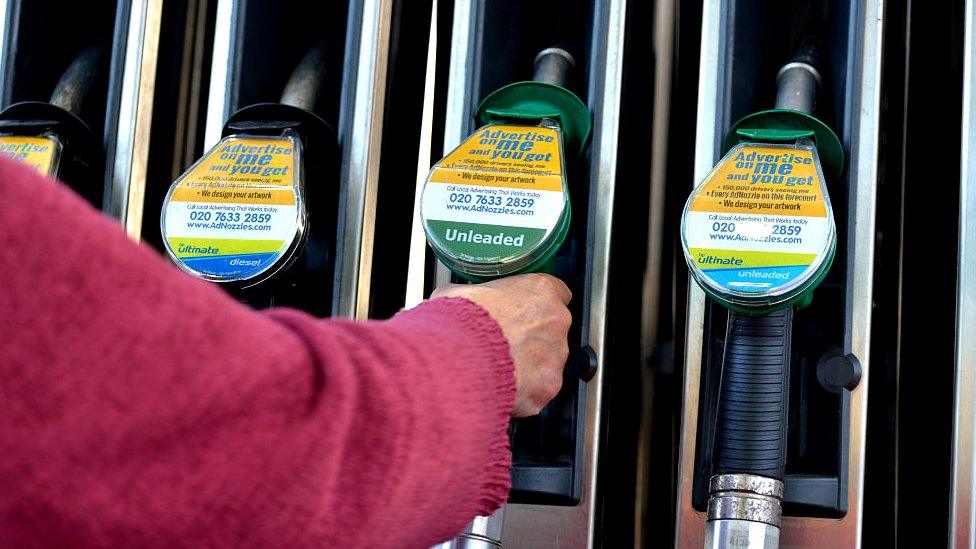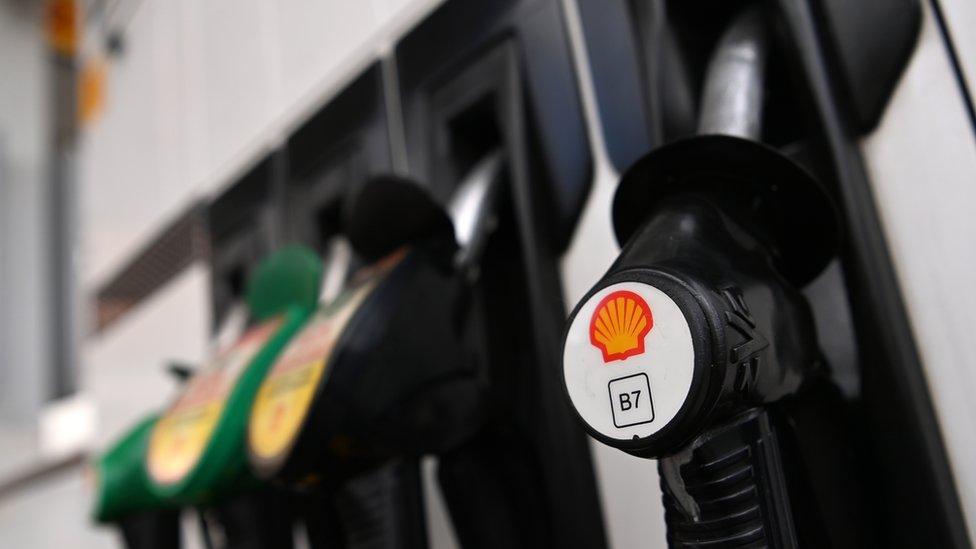Petrol prices: 'Getting to work costs so much I might have to quit'
- Published

Gordon tells Radio 1 Newsbeat he's seen petrol prices as high as 204.9p
The cost of filling up the tank of an average car with petrol is has now hit £100 - and that's having a huge impact on people across the UK.
People who rely on their cars for work are struggling with high prices as they continue to rise, in the midst of a cost of living crisis.
It's partly because of the war in Ukraine, which has led to Europe cutting down oil imports from Russia.
Before invading Ukraine, Russia had supplied a quarter of the oil EU countries import - but the UK has joined the US and EU in banning imports of Russian fossil fuels, as part of sanctions against the country due to the war.
There has also been criticism of fuel companies like BP and Shell, which have recorded record profits this year - following a decline during the pandemic.
All this has led to soaring prices, and that's affected people like Gordon, who works as a driver in Consett, County Durham, and is even considering changing his job because of the cost of petrol in the UK right now.

A UK ban on petrol being imported from Russia has pushed prices at a time when people were already struggling
Gordon drives 30 miles every day to get to work.
"It's actually getting to the point now where I'm contemplating leaving a full-time, steady job to look for something close to home just to save 30 or 40 quid a week on fuel," he tells Radio 1 Newsbeat.
"It's a very hard decision but I've got a wife, a house and kids - and that money that is spent better elsewhere."
Olivia's a nurse in Flintshire, north Wales. When she filled up her car this week, it cost her £55, and has seen prices near her as much as 195p per litre.
"In my seven years of driving, it's never cost that much," the 24-year-old says.
"I work as a nurse and it takes me half an hour to get there and half an hour back."

Olivia says the cost of petrol is having a big impact on her and her nursing colleagues
But she says there are other nurses in a much worse position than she is.
"My colleagues that do community nursing and have to drive around to patients houses - it's costing them an absolute fortune."
Laura lives in Cumbria, and says the petrol prices are affecting her mental health. She drives her car 25 miles each way to work and back every day.
"I'm finding the cost of petrol just really worrying," she says.
"It's affecting my anxiety, I just don't know when the price increase is going to stop and how it's going to affect me getting to work.
"I spend about £200 a month at the moment and I just don't know when that's going to stop going up. I'm just really worried."
And delivery driver Michaela says she's putting £30 of diesel in her car every day - costing her up to £200 a week, up from £90 during the pandemic.

Michaela says current petrol prices are "the most expensive I've seen probably my lifetime"
One person contacted Radio 1 Newsbeat to say it was costing them the equivalent of a day's wage to buy petrol for a week.
Another said they were now spending a quarter of their wages on petrol.
What's being done to help?
In March this year, the government cut fuel duty on petrol and diesel by 5p per litre.
But prices have risen so high since then, this reduction's had almost no effect.
The Labour Party called for a windfall tax on oil and gas companies, to try and help people during the current cost of living crisis, but despite Conservative MPs initially voting down this plan, chancellor Rishi Sunak recently announced UK energy firms would pay an extra 25% tax over the next 12 months - potentially raising up to £5billion.


Follow Newsbeat on Instagram, external, Facebook, external, Twitter, external and YouTube, external.
Listen to Newsbeat live at 12:45 and 17:45 weekdays - or listen back here.
- Published9 June 2022

- Published14 August 2023

- Published16 May 2022
